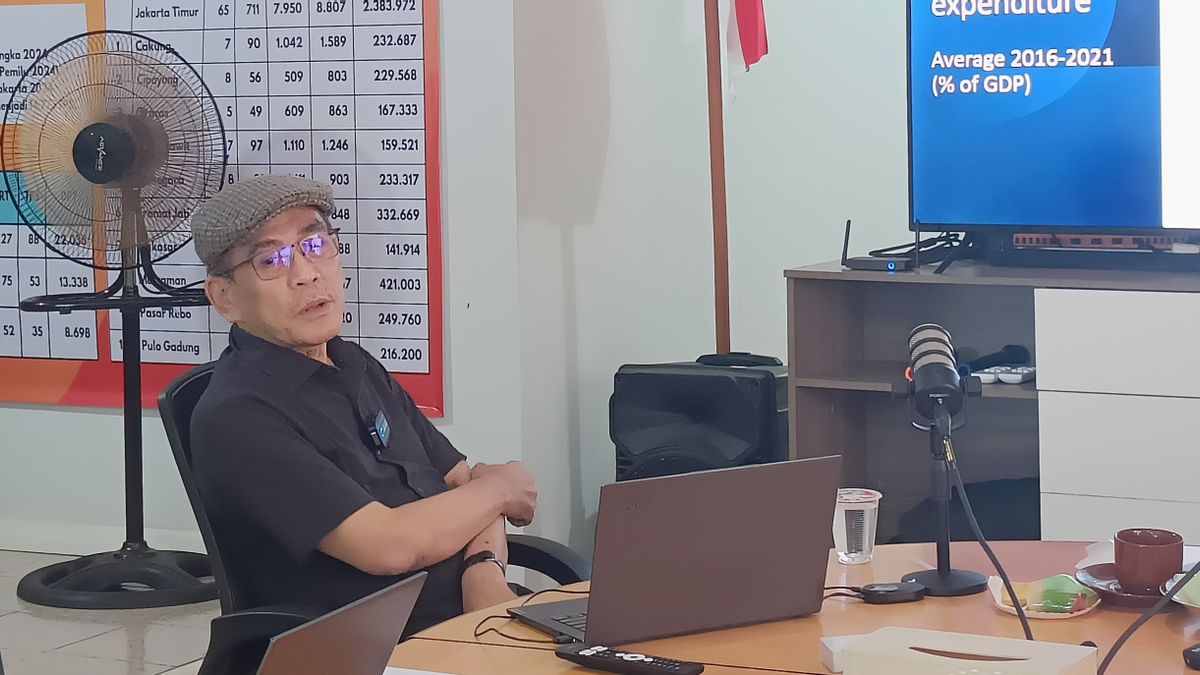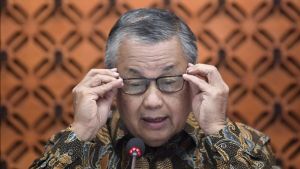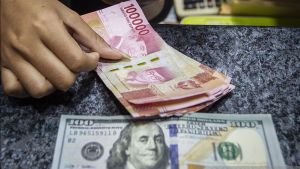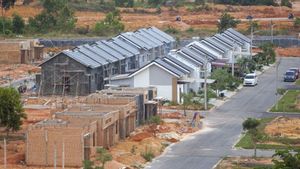JAKARTA - Senior Economist Indef Faisal Basri said the government debt in the first year of the leadership of the President and Elected Vice President Prabowo Subianto-Gibran Rakabuming Raka has the potential to reach IDR 10,000 trillion.
Based on data from the Ministry of Finance (Kemenkeu), the position of government debt has reached IDR 8,502.7 trillion by the end of July 2024.
This figure still has the potential to increase until the end of 2024.
Because, based on the government's outlook calculation, budget financing through debt until the end of this year reached Rp553.1 trillion.
Meanwhile, based on data from the KiTa State Budget, the realization of the withdrawal of government debt has only reached IDR 253 trillion by the end of July 2024.
"If we look at it until the end of this year based on the plan to owe 8.7 quadrillion, it will no longer use trillions," said Faisal in a discussion entitled Reviu RAPBN 2025: Debt Facilitation in Jakarta, Wednesday, August 21.
As for next year, based on the Financial Note document of the 2025 State Revenue and Expenditure Budget Draft (RAPBN), the government will finance debt of IDR 775.9 trillion.
However, Faisal assessed that the government under the leadership of Prabowo could make a larger debt withdrawal later in order to accelerate priority spending. Thus, the position of government debt can reach IDR 10,000 trillion.
"It is possible (the government's debt) could be IDR 10 quadrillion. In addition, IDR 10 quadrillion, responsibility," said Prabowo," said Faisal.
"For example, if you want to accelerate nutritious food more quickly, it could be implemented," he continued.
Faisal also highlighted the development of government debt which has more than tripled in the 10-year period of Jokowi's leadership.
He realized that the government's debt ratio was still in the range of 38 percent of gross domestic product (GDP) and below the applicable provisions, which was 60 percent of GDP.
However, the large outstanding government debt makes the need for interest spending and debt installments continue to swell every year.
As a result, the government's ability to carry out spending has an impact directly felt by the community, such as capital expenditures and lower social assistance.
SEE ALSO:
According to Faisal, until now, the portion of interest spending and debt installments has reached 20.3 percent of the total government spending ceiling.
That figure also almost doubled from the position in 2014, which was 11.1 percent.
"This is from 11 to 20. So, twice the burden, so the fiscal space is getting narrower. For others, yes, nothing like that. Small," he added.
The English, Chinese, Japanese, Arabic, and French versions are automatically generated by the AI. So there may still be inaccuracies in translating, please always see Indonesian as our main language. (system supported by DigitalSiber.id)














